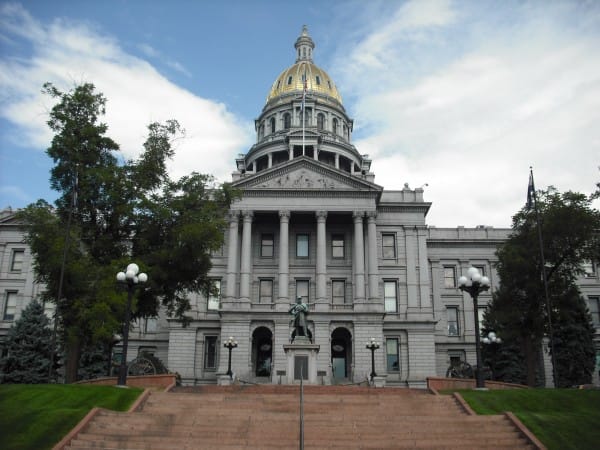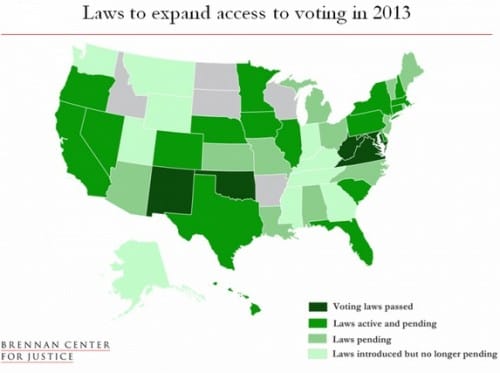Colorado Passes Law Expanding Voting Access, Follows National Trend

http://www.opencurrency.com/

Last week, the Colorado Senate voted in favor of an important election reform bill, making the state the latest example of a nationwide trend to expand voting access.
In 2011 and 2012, a number of state legislatures passed laws implementing new restrictions on voter access, including requiring voter IDs, shortening early voting periods, or making it harder to register to vote. These initiatives, often led by Republican-controlled legislatures, were more or less successful as some were prevented from taking effect by court decisions.
In 2013, the new trend nationwide seems to be undoing the effects of these restrictive laws. According to the Brennan Center for Justice, at least 204 bills expanding voting access have been introduced in 45 states. In comparison, at least 82 restrictive bills have been introduced in 31 states. Credit: Brennan Center for Justice

Colorado House Bill 1303 is a broad effort to modernize the state's election system and increase voter participation. The key measures include:
- Allowing same-day registration,
- Creating an all mail ballot system,
- Mandating the secretary of state to track changes of address within the state and update voter records so they don't have to re-register.
This election reform, sponsored by Democratic Senator Angela Giron, received the support of a majority of county clerks in the state. However, the vote was split along party lines as Republicans opposed the bill. They believe the reform will benefit the Democrats and they are afraid same-day registration will allow more voter fraud.
Other states are implementing similar changes. Maryland now allows online registration, early voting, and same-day registration during early voting. Delaware passed a constitutional amendment making it easier for people with criminal records to regain their right to vote. Minnesota is expected to pass a bill making early voting easier.
However, these changes are not limited to legislatures with Democratic majorities. Florida recently passed a major election reform bill in an attempt to undo the 2011 changes that led to the 2012 disaster. To deal with the long waiting lines issue, the bill allows early voting to be between 8 and 14 days. It also increases the number of polling places that can be used.
The Oklahoma Legislature changed its existing voter ID law and made it less restrictive. Virginia, while passing a voter ID law, made voter registration easier by providing online voter registration.
All of these new laws expanding voting access, supported by Democrats and Republicans, might indicate that the time has come to give all voters a chance to have their voices heard on Election Day.



